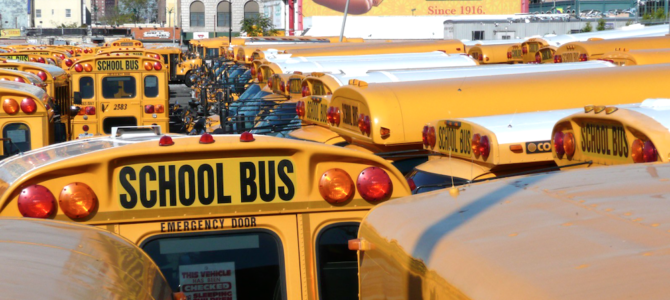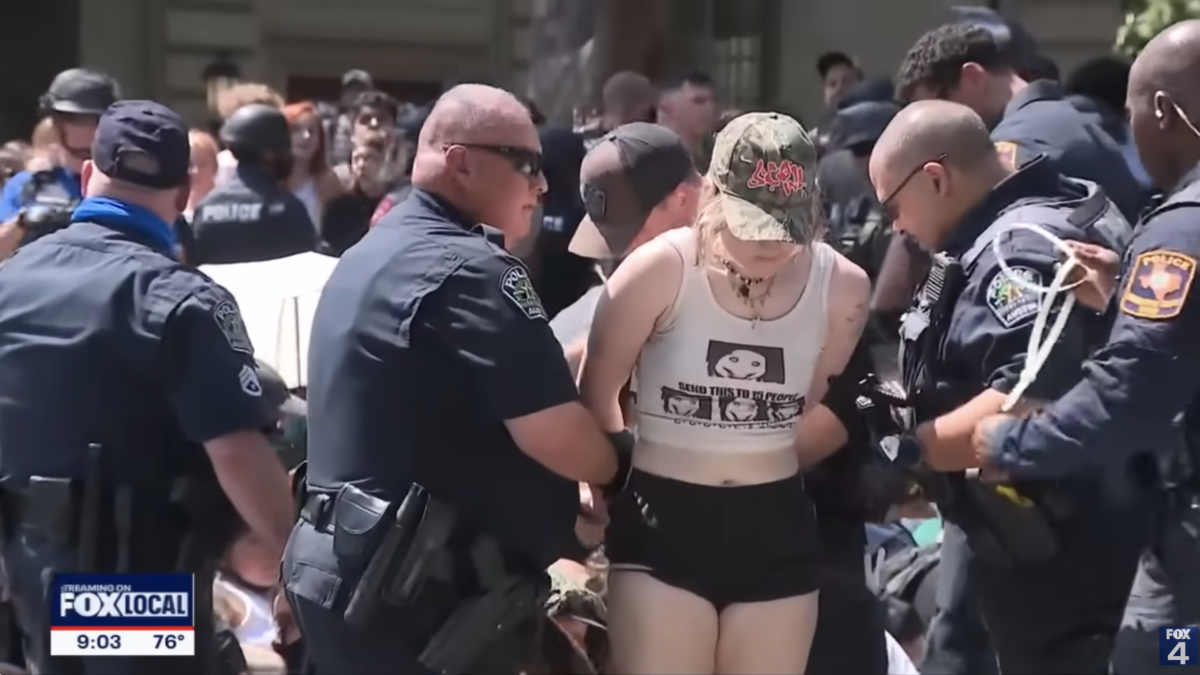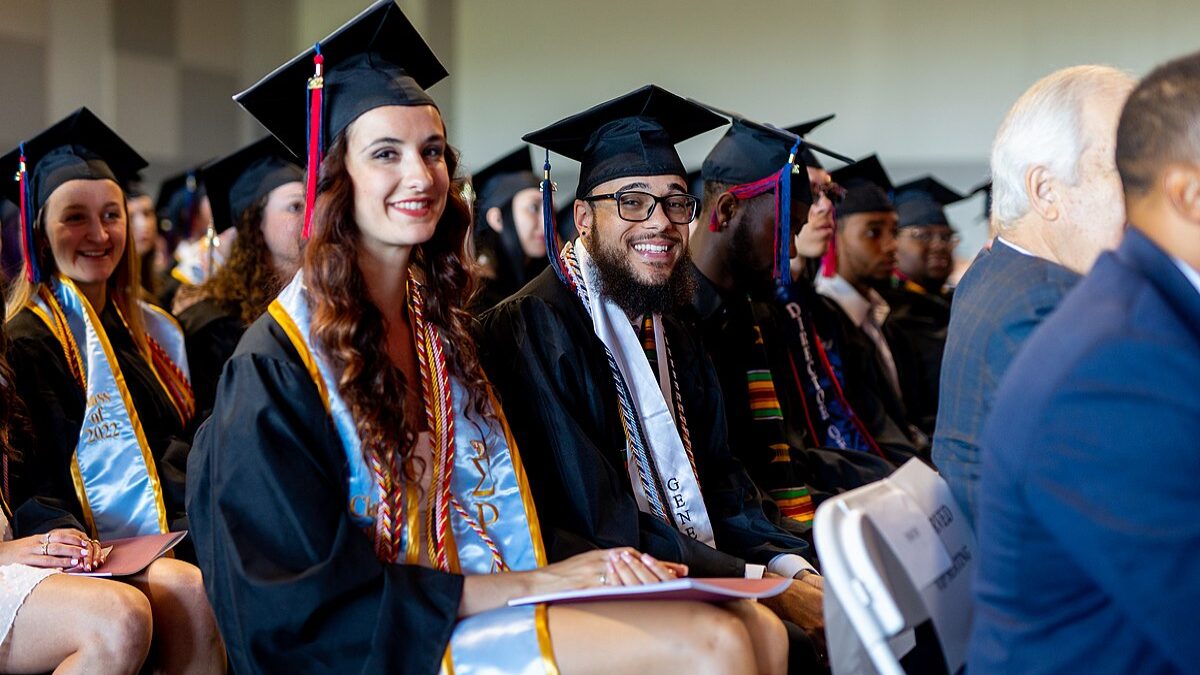
The other day, I stood in line to pick up textbooks for my son’s fifth-grade school year. The line stretched down and around the block as all the parents in the neighborhood gathered outside our local public school to wait their turn.
I looked around to find any faces I might know in the crowd, trying to see any parents of my son’s friends. I didn’t see any of the moms I knew, but as I scanned the crowd, I became aware, as I do at every school event, that I was one of only a few white faces in a line more than 100 people long.
As I overheard conversations in Arabic, Spanish, Chinese, and other languages I didn’t recognize, I was reminded of the latest white-hating podcast from Chana Joffe-Walt and The New York Times. In her five-part series, called “Nice White Parents,” Joffe-Walt lays out her assessment that “nice white parents are a scourge on New York schools,” then extrapolates that they are probably a bad influence everywhere they’ve tried to do good. Clearly, she is not talking about my son’s Brooklyn school.
Nice White Parents Are to Blame
New York City has the largest school district in the country. With 1.1 million kids enrolled in more than 1,800 public schools across five boroughs, NYC is a microcosm for the country. This was the premise for Joffe-Walt’s exploration of how nice white parents ruin education for everyone else, especially when they try to help.
Using for her case study one Brooklyn middle school in the tiny Cobble Hill neighborhood, Joffe-Walt follows it from opening in 1968 to the present. At nearly every stage of the game, nice white parents got involved with the school to try to make it a better place for their kids and for the children of the community. This was a bad move, according to Joffe-Walt.
When the school was first being built, it was nice white parents who asked that the school be moved closer to the white part of the neighborhood as opposed to the black part. This was presumably so these parents could send their kids to what would be an integrated school, although it meant the black kids would have to walk several blocks farther to attend lessons. The city moved the school where the white parents wanted it because city leaders wanted white parents to send their students there. In an integrated school, the decision-makers reasoned, all the kids would get a better education.
Although the city complied, the white parents didn’t send their kids to the school. According to Joffe-Walt, this was probably because deep down they were secretly racist. They wanted integration in theory, but in practice, they couldn’t handle it.
Joffe-Walt Draws Sweeping Conclusions
As time went on for this Brooklyn middle school, nice white parents continued to make an appearance, popping in and screwing things up for the black and brown kids and their parents. The nice white parents directed curriculum and funding where they thought it would be best for their nice white kids.
Joffe-Walt talks to neighborhood residents — from parents in the nearby housing projects, who all sent their kids to the local school, to the nice white parents who, unable to get their offspring into the “best” public schools due to a lack of space, decided to turn the school housed at 284 Baltic Street into the school they wanted.
When a recent spate of parents wanted to create a French-language program and raise money for it, the school administrators were on board, but fellow parents on the parent-teacher association, who had been there longer and liked how they were running things, were less enthusiastic.
These kinds of cultural clashes occurred over and over, Joffe-Walt reports, and each time, the nice white parents, with their good intentions, were to blame. In fact, that’s how the podcast is set up from the beginning.
Joffe-Walt is sure, from the outset, that what she will uncover is that white people who have only the best intentions screw things up for everyone else. That’s the nature of systemic racism, white privilege, and unconscious bias. “Rich white people control the agenda, the priorities, and the money,” she says.
By the last episode, however, Joffe-Walt is forced to change her tune. She finds that instead of white parents making things worse for everyone else just so their own kids get ahead, the latest crop of these parents changed the admissions process, making it less possible for nice white parents to throw around their priorities and influence. Joffe-Walt is surprised to find that the new nice white parents in Cobble Hill really want the best education not only for their own children, but for all the kids.
In fact, the nice white parents she encounters in the final episode are not driven by the same mission of finding the “best” education for their kids. In large part, this is because no one really has any idea anymore what that should be. Should kids be focused on math? Science? Some amalgam of humanities? Should they be studying Chinese? Their own inherent unseen biases via critical race theory?
Parents Look Out for Their Own Kids
Standing in line, waiting for my socially distanced turn to pick up my son’s workbooks in math, science, social studies, and English, it occurred to me that I am not looking to nice white parents to ensure my son gets a proper education. Instead, I am counting on the immigrant parents.
The parents I have talked to, who speak three languages to my one and apologize for their English, have set a high bar for academic achievement for their children. The school’s extracurriculars are not language immersion or race-based affinity groups. Instead, they are extended-day academic programs. These parents are not worried about integration. Rather, they are concerned about academic rigor. On whose education concerns them most, it is their own children.
Joffe-Walt’s concern is that nice white parents are too focused on their own kids and not enough on sharing their resources with others. She is missing the fact, however, that in the rest of Brooklyn, and probably in the rest of the country (if her extrapolation game holds), most parents are focused on their own children’s education, to the exclusion of other kids. Joffe-Walt condemns nice white parents because their good intentions weren’t good enough and they failed to solve complicated problems that no one else has had a good answer for either.
Joffe-Walt believes these nice white parents are responsible for considering the equity of the education of all children before they consider their own kids, but she doesn’t expect this from any other racial or ethnic group. Joffe-Walt smacks down these white Cobble Hill parents for trying to do more for education than most parents of any other color, holding white parents as culpable for trying and failing as if they had not tried at all.








